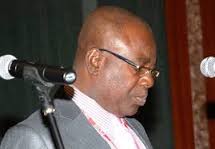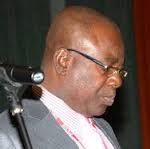The National Population Commission (NPC) has inaugurated the steering committee of Resources for the Awareness of Population Impact on Development (RAPID II) to highlight the effect of high fertility and rapid population growth in Nigeria.
Inaugurating the committee in Abuja, the Chairman of the commission, Mr. Eze DuruIheoma said the commission had the financial and technical support of USAID to conduct the exercise.
Mr. Duruiheoma said the committee would provide evidence base information on the challenges of sustained rapid population growth and the benefits of managing Nigeria’s population.
He said issues of large population of young people, high maternal mortality ratio and large population of women of reproductive age, among others, call for attention; thus making RAPID very important.
The chairman, however, noted that RAPID highlights social and economic consequences of high fertility and rapid population growth for labour, education, health urbanisation and agriculture, among other sectors.
He added that RAPID would be used to raise the awareness of policy makers on the importance of fertility and population growth as factors in social and economic development.
The chairman expressed optimism that the committee would need the expertise and experience to conduct the exercise.
He commended USAID for providing technical and financial support to the exercise.
Responding on behalf of other committee members, Prof. Oladapo Ladipo, urged stakeholders, including government and parents, to consider child spacing as key for national development.
Professor Ladipo said that a healthy, educated and nourished population would ensure a prosperous nation.
He pledged the commitment of members to deliver the task.
Contributing, the Executive Secretary of the National Health Insurance Scheme (NHIS), Prof. Usman Yusuf, advised the committee to adopt pragmatic and community based techniques to ensure the success of the advocacy.
Other members of the committee included representatives of the Minister of Health, UNFPA, PPFN, NAN and other development partners.





